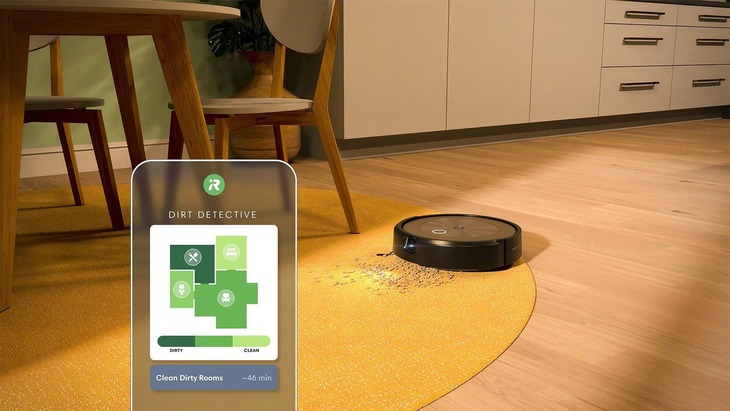
The Roomba vacuum cleaner's data leak has left users confused when using smart home appliances - Photo: IROBOT
Recently, a video went viral on social media, causing confusion among viewers when private images - including a woman sitting in the toilet - were captured by a Roomba robot vacuum cleaner and appeared publicly on Facebook.
This seemingly unbelievable story actually originated in 2020, when some experimental Roomba robots recorded images of users in their homes for the purpose of training artificial intelligence (AI).
However, loopholes in data processing and security have caused those private images to leak out, raising concerns about privacy when using smart home appliances.
According to an investigation by MIT Technology Review , the leaked images were collected by a test robot from iRobot - the company that produces Roomba.
These robots are not for sale to the public but are provided to employees and test users for the purpose of training the AI system. The devices are clearly labeled with video recordings, and the testers signed an agreement allowing the images to be collected.
However, the data processing was flawed. iRobot hired Scale AI to label the images, but the company’s workers had access to private photos, many of which were leaked to Facebook.
iRobot confirmed that these devices are not the same as the commercial version and are not available on the market.
However, some participants in the pilot program said they felt deceived by the terms of the agreements they signed.
The incident raises a number of privacy concerns about smart home devices. Many commercial Roomba models can now collect data about home layouts, dust levels, usage habits, and even audio or video — depending on the model and the level of internet connection.
However, data transfer only occurs if the user is registered for the iRobot Select program , connected to the Internet, WiFi or bluetooth, and accepts sharing.
In addition to Roomba, many other robot vacuum cleaner brands have also been questioned about security. In 2024, researchers in Australia successfully hacked into an Ecovacs Deebot X2 robot model and discovered a serious security flaw.
Previously, some Ecovacs robots in the US were hijacked and emitted racist messages, showing the risks from seemingly harmless devices in the home.
Source: https://tuoitre.vn/thuc-hu-viec-robot-hut-bui-lam-lo-hinh-anh-rieng-tu-cua-nguoi-dung-20250515112543152.htm


































































































Comment (0)